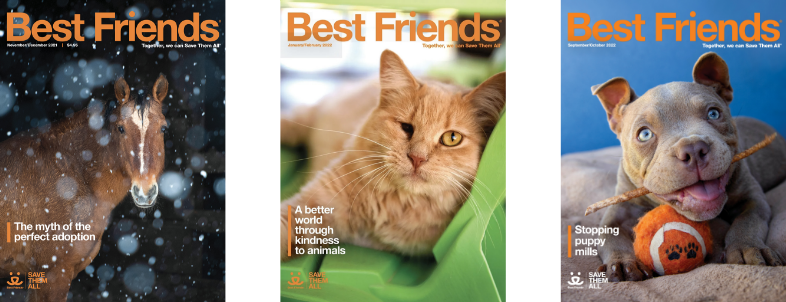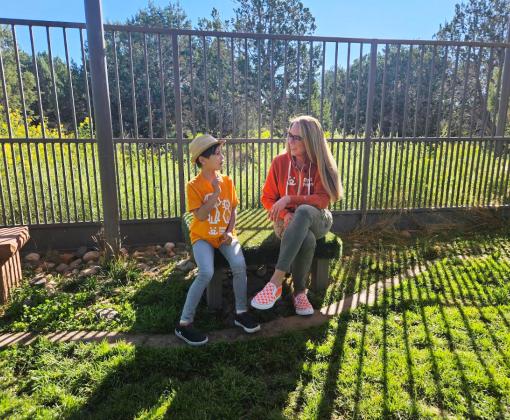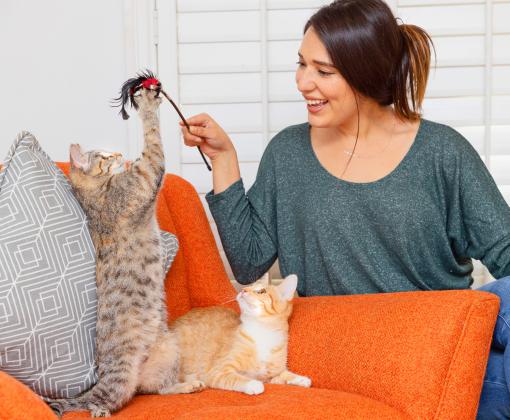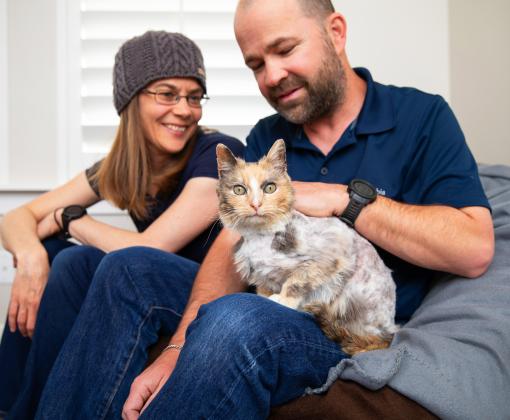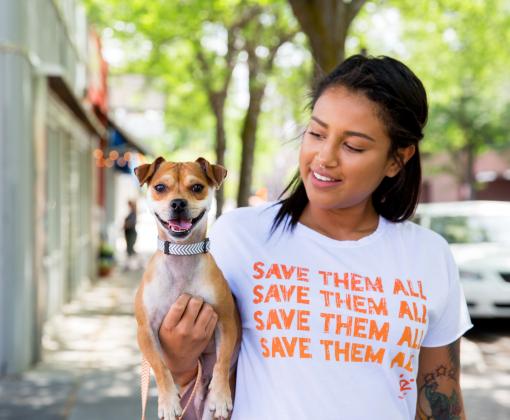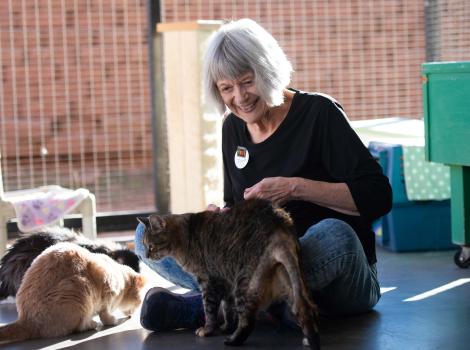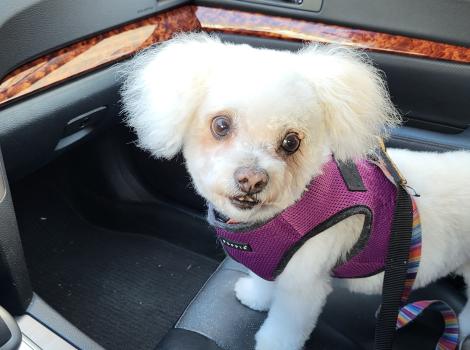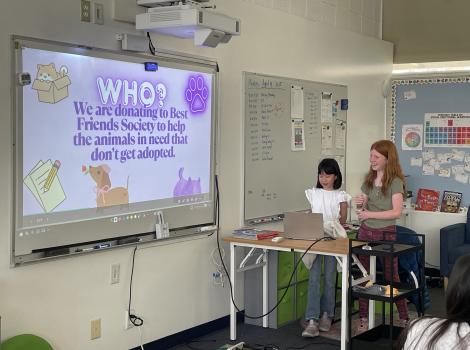Young activists doing good for animals
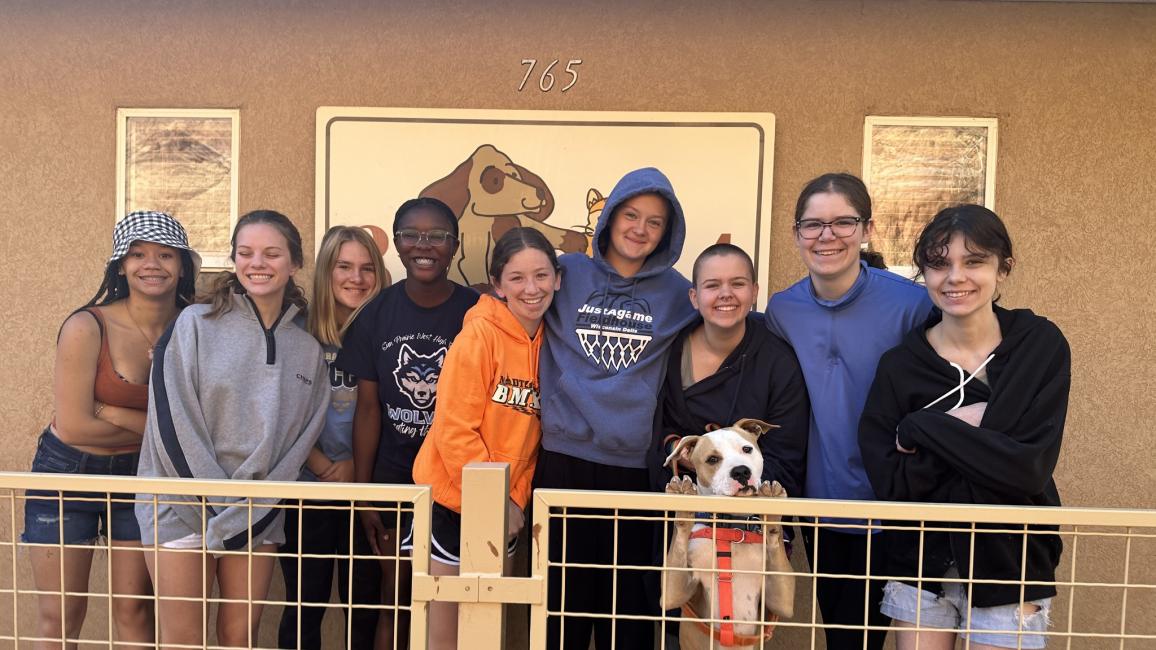
It’s no secret that kids love animals, so it should come as no surprise when they go the extra mile to help pets. Meet some young people who are doing just that.
Turning lemonade into profits for pets
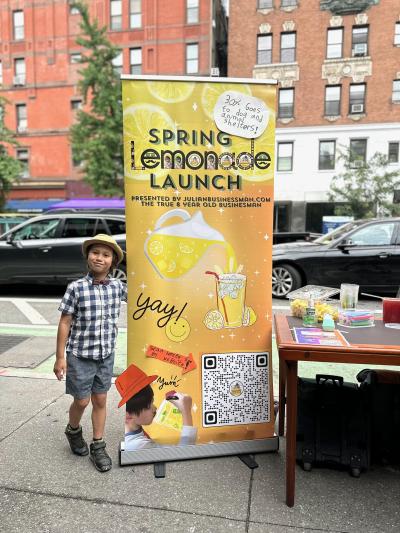
Some entrepreneurs are made; others are born. It’s clear that Julian Lin falls into the latter category since he’s been interested in business from the age of 4. That’s when he got his first job at a fruit stand in New York City, handing out bags, restocking produce, and sweeping the sidewalk. Then, during the pandemic, he started a meal delivery service, called J’s DINR, for his neighbors. But that wasn’t enough for this youngster because he soon opened two seasonal food stands, J’s Lemonade and J’s Hot Chocolate, and he donates 30% of his net profits to pets in shelters. “I love animals,” he says. “My goal is to end all world hunger and homelessness for people and dogs.” And who’s going to argue with a vision for the future like that? Certainly not us.
To help meet that goal, 8-year-old Julian has donated to several rescue groups, including Beastly Rescue in New York City and Best Friends, for which he raised $5,300. (Part of that, by the way, came from the donations he received after his stand was robbed.) In fact, a few months ago, he presented a check from his earnings earlier in the year to Best Friends’ downtown Manhattan location. And since the Maui wildfires, he has raised more than $10,000 — donating a third each to the Maui Humane Society, the Maui United Way, and a friend who lost his home.
[Young entrepreneur brings generosity to adoptable pets]
So what sets Julian’s lemonade apart? “I serve it with popping boba, fruity balls that pop in your mouth,” he says, and he adds fresh mint or lemon slices. Plus, dogs who come to the stand get free treats. And his signature hot chocolate? Called the Hangry, it features whipped cream, two candy canes, three gingerbread men, four scoops of marshmallows, chocolate syrup, and Oreo cookie crumbles. “It’s for when you’re really ‘hangry,’” he says.
To support Julian’s business while helping Best Friends, you can purchase branded merchandise (30% goes to Best Friends) at julianbusinessman.com. If you want to know where his stands will be located, get on his mailing list by emailing ceo@julianbusinessman.com.
Tag, you’re it!
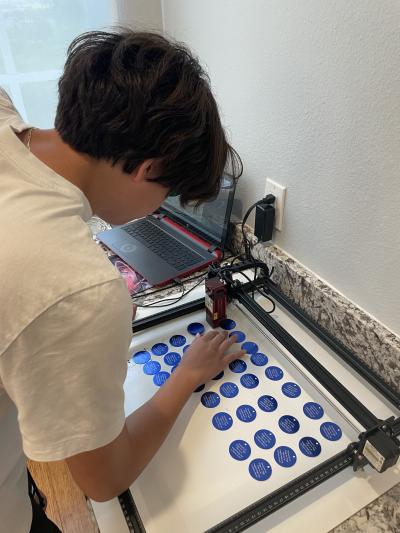
After adopting a dog from a shelter in 2017 and another from a rescue group in 2018, Kenny Yip of Tampa, Florida, noticed they had something in common: Neither came with an ID tag. Of course, he rushed to a pet store to get tags in case one of his dogs got loose accidentally, but that inspired a thought. Kenny says, “Wouldn’t it be great if they had come with tags, so we wouldn’t have had to be in a hurry to get one?”
Fast-forward to the start of this year. Now 16, Kenny recognized that rescue organizations need free pet tags, and that’s when he got the idea for Wags for Tags. The 501(c)(3) organization offers free custom-engraved pet ID tags to rescue groups and shelters that are registered 501(c)(3) charities. On the front, he engraves the organization’s name and phone number, while the back contains Wags for Tags’ information. “Because dogs and cats are most likely to get lost in a transitional period, my hope is that cats and dogs wear them to their new adoptive homes and while in foster care,” Kenny says. “In case they do get lost, someone can quickly call the rescue or shelter they came from, and the animals can get the assistance they need.”
In the short time that Wags for Tags has been around, 11 organizations in Florida, Georgia, and Illinois have signed up for free tags. Since April, more than 1,100 tags have been distributed. Kenny is able to fund them through donations and custom engraving. “I ask rescues to let new pet parents know that I custom-engrave and ship high-quality, stainless-steel pet ID tags for a $10 donation,” he says. The purchase of one tag helps pay for about 15 tags for rescue groups.
Shelters and rescue groups interested in signing up for Wags for Tags can visit their Facebook page. Kenny asks anybody who has participated to give a shout-out to Wags for Tags on social media and share photos of their animal wearing the tag.
Scouting out their mission
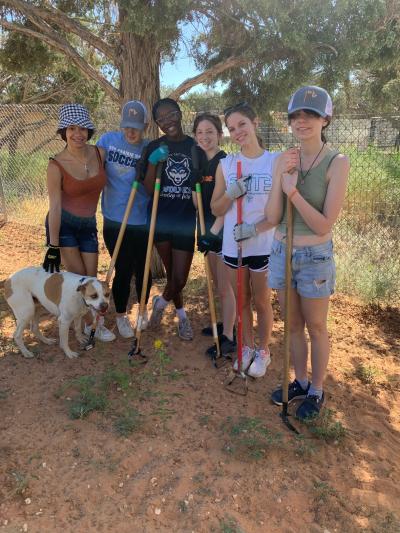
For a decade, 11 girls have made up Girl Scout Troop 1019 in Madison, Wisconsin, and from the start, one focus has united them. “They’ve always loved animals,” says their troop leader, Karen Ball. “We’ve spent a lot of time getting to know animals through horseback riding, zoo visits, and animal handlers talking to our group. Eventually, the goal became how we can help animals.”
Throughout the years, the troop has worked with or visited their local humane society, Heartland Farm Sanctuary, Primates Incorporated, and the International Owl Center. “We’ll do whatever these centers need, whether that’s rehabbing enclosures, making blankets, or cleaning,” Karen says.
Yet the stand-out activity might be volunteering at Best Friends Animal Sanctuary in Kanab, Utah. For five days last June, the troop did everything from pulling weeds and deep-cleaning several indoor areas to playing with the pigs and hosting a dog for a sleepover in the Sanctuary’s cabins. “Helping the animals is important because I believe they’re some of the purest souls on this Earth, and they deserve the utmost love and respect,” says Lucy Beckett-Ball, 16, one of the troop members. “My heart hurts for any animal who hasn’t been shown that, and Best Friends has done a beautiful job of helping those animals live a life full of love.”
Music to their ears
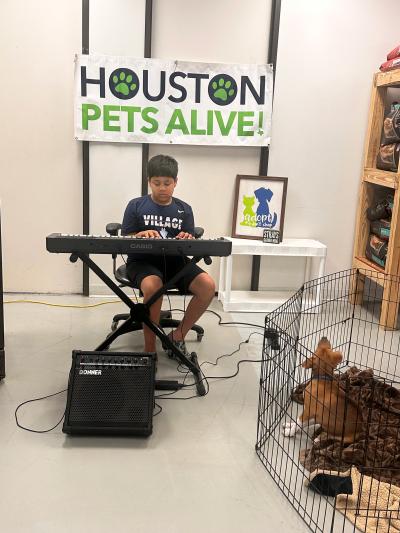
If you’ve ever walked into an animal shelter, you know how loud the dogs’ barking can be. Unless, that is, they’re listening to Yuvi Agarwal’s relaxing piano music. Every week for 45 to 60 minutes, 10-year-old Yuvi plays his piano for the animals in the Houston Pets Alive shelter in Texas.
Yuvi got the idea after watching his dog Bozo react to the piano. Even though he’s a playful, energetic dog, Bozo relaxes as soon as Yuvi starts playing. “Bozo likes any soft, melodious music,” he says, adding that he loves to compose music on the go, all of which is easy on the ears. That inspired him to create Wild Tunes, an initiative to bring music therapy to animals in shelters. “A lot of shelter animals have had a difficult past,” Yuvi says. “Maybe they were abandoned, surrendered, or neglected, but they haven’t done anything wrong and deserve as much love and kindness as any other pet or human.”
When Yuvi arrives at the shelter, the dogs are barking, but they stop as they relax and listen to his music. There’s a reason for this. “Research shows that music reduces stress in dogs,” he says. “It lowers their cortisol levels, a chemical that makes them hyper and anxious and triggers restlessness.”
To say that he’s made a lot of canine friends is an understatement. Take Toby, for instance, a dog who came to the shelter with major injuries, including a broken jaw and a missing left eye. At first, Toby was shy, but the more he saw Yuvi and heard his music, the more he warmed up. Soon, Toby became one of the friendliest dogs at the shelter, which led to him being adopted. “My music helped him readjust to humans,” Yuvi says.
Yuvi is hoping to spread Wild Tunes throughout the country. Shelters can visit wildtunes.org [wildtunes.org] to sign up for the program. Kids — and even adults — can then find a shelter in their area that’s registered for Wild Tunes and volunteer to play music for the animals. “By using their talent, they can make a difference in the lives of shelter animals,” Yuvi says.
Protecting pets via the law
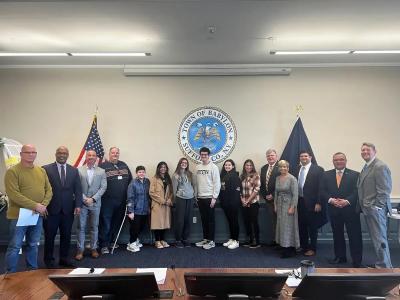
Numerous cities have laws about companion animals being left outside. But in the town of Babylon, New York, the laws were lax. The Teen Wildlife Protectors club at Half Hollow Hills High School decided to do something about it. “We’re all big animal lovers and have advocated for rescues and other organizations, but we’d never tackled the issue of animal abuse by pet owners,” says 17-year-old Bennett Vogel, who first brought up the issue with the club.
In hopes of initiating change, the club members reached out to local legislators and got an immediate response from an official who put them in touch with the Babylon Animal Shelter. This issue had already been on everybody’s minds, but “it was the club who pushed it over the edge,” Bennett says.
[Help animals and start saving lives in your community today]
Thanks to the club’s work, a new law was passed to give protection to companion animals left outdoors. The law states that in inclement weather, dogs can’t be tied up for longer than one continuous hour in any continuous 12-hour period and must be given adequate food, water, and shelter while restrained. The restraint must have swivels at both ends that’s an adequate length for the type, age, and size of the dog being restrained. Punishment for violating any part of the law starts with a $250 fine or imprisonment of up to 15 days.
“Our group is proud that we made a difference in the lives of animals,” Bennett says. “It was very gratifying to be part of the legislative process to create a law that protects the things we love the most.”
This article was originally published in the November/December 2023 issue of Best Friends magazine. Want more good news? Become a member and get stories like this six times a year.
Let's make every shelter and every community no-kill by 2025
Our goal at Best Friends is to support all animal shelters in the U.S. in reaching no-kill by 2025. No-kill means saving every dog and cat in a shelter who can be saved, accounting for community safety and good quality of life for pets.
Shelter staff can’t do it alone. Saving animals in shelters is everyone’s responsibility, and it takes support and participation from the community. No-kill is possible when we work together thoughtfully, honestly, and collaboratively.
